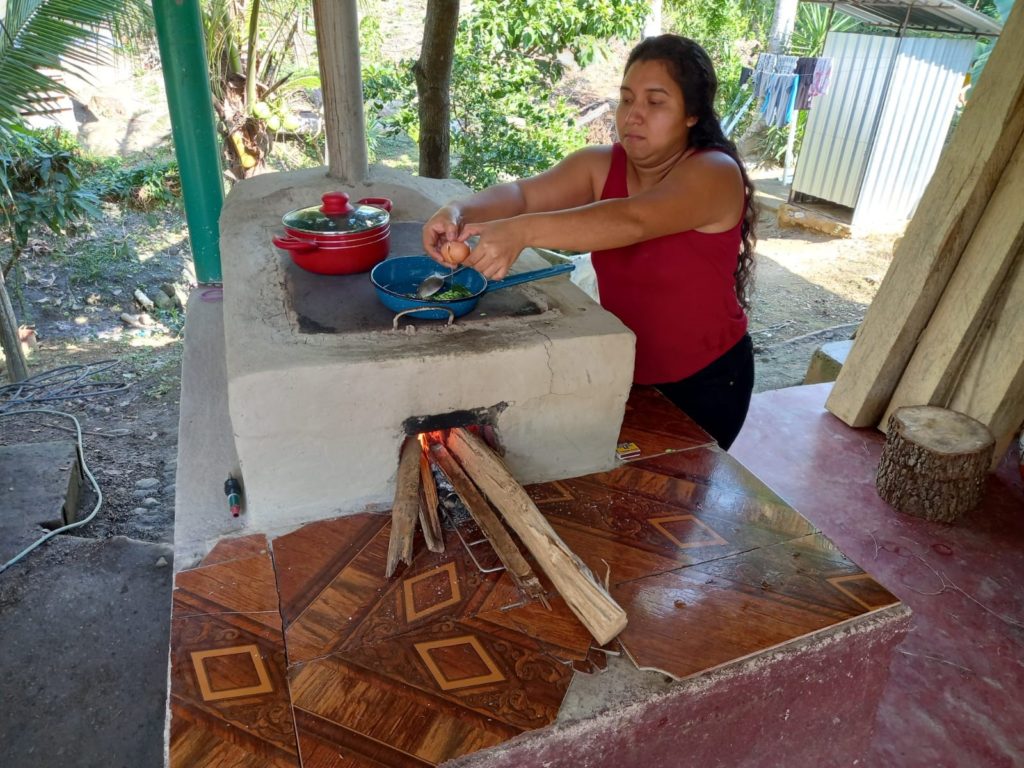
Impossible Dreams? Not Any Longer
Preparing chicken soup with basil, oregano, and green bananas, or the fried fish that Esmeralda’s son and husband like so much, is easier and safer with the new eco-stove in the kitchen. Because it uses less firewood and cooks food faster, she spends less time overall in getting meals together.
Her old stove was so inefficient that it devoured firewood, created a lot of smoke, and covered every surface in the house in a greasy black soot. She says, “Before, I had a permanent cough from the smoke, but with this stove there is no smoke so it’s easy on the lungs. And you hardly need any wood to cook a meal.”
Esmeralda’s family is one of about sixty in the area that have adopted the eco-stove to improve their health, decrease environmental pollution, and reduce the need to cut down trees for firewood. Local partner CASM focuses on a range of ecological strategies to help these smallholder farmers adapt to changes in their environment and weather patterns and lower the risks associated with drought, flooding, fires and the loss of biodiversity and soil. All while improving their food security and making it possible to earn incomes.
Esmeralda says she grows most of the food the family eats now, and sells or exchanges some with her neighbors. Her next goal is to get a biodigester to make use of the methane gas from decomposing organic matter, such as animal manure, to produce electricity. She says, “A dream we have as a family is to have a micro-business, like selling meat from our poultry and pigs. After we get the biodigester, the first thing we are going buy is a freezer.”
Eventually, they’d like to add on to their two-room house. Esmeralda’s success so far has made it possible for her to believe her dreams can become reality.
Honduras Macuelizo Program
Led by Church World Service and Local Partner CASM
